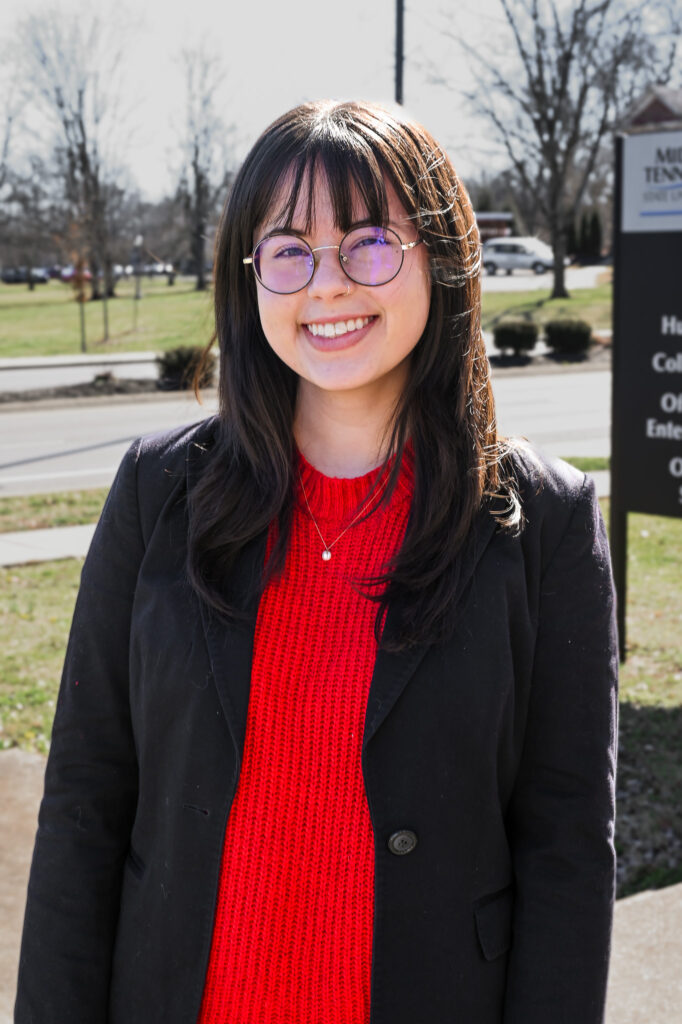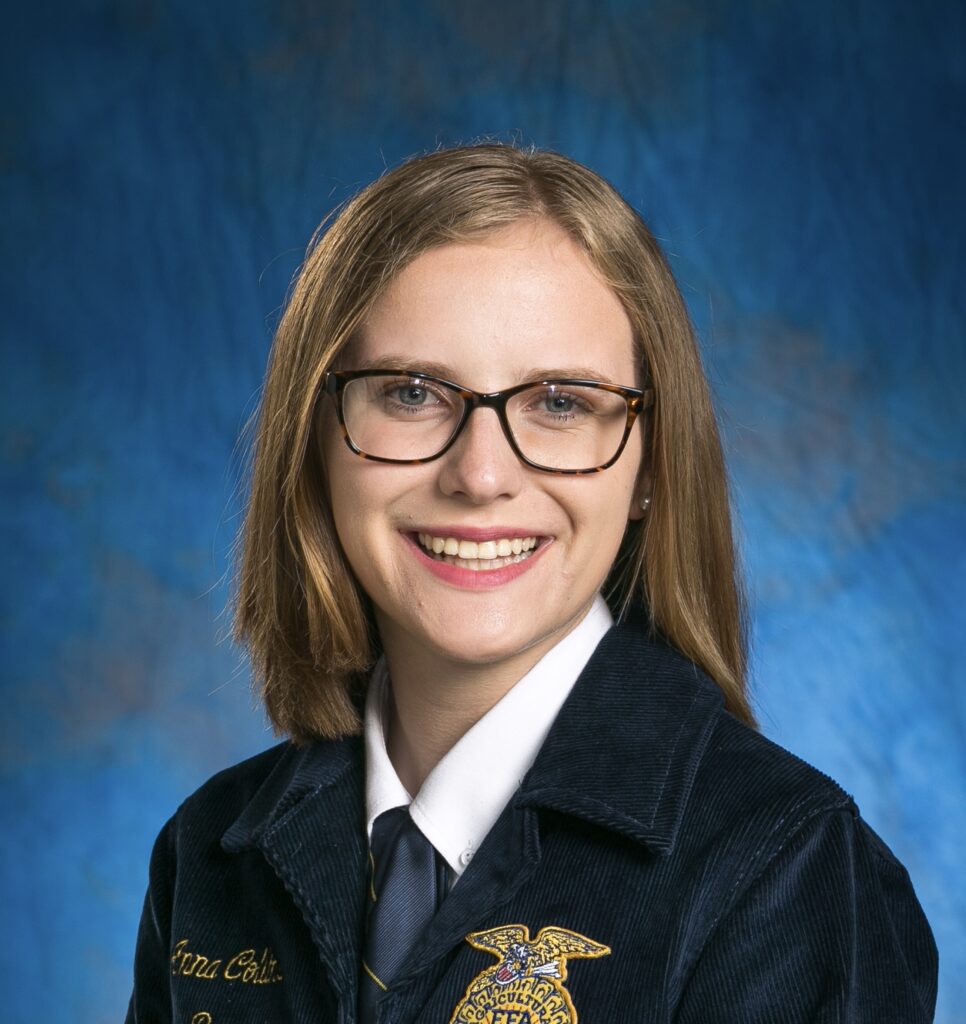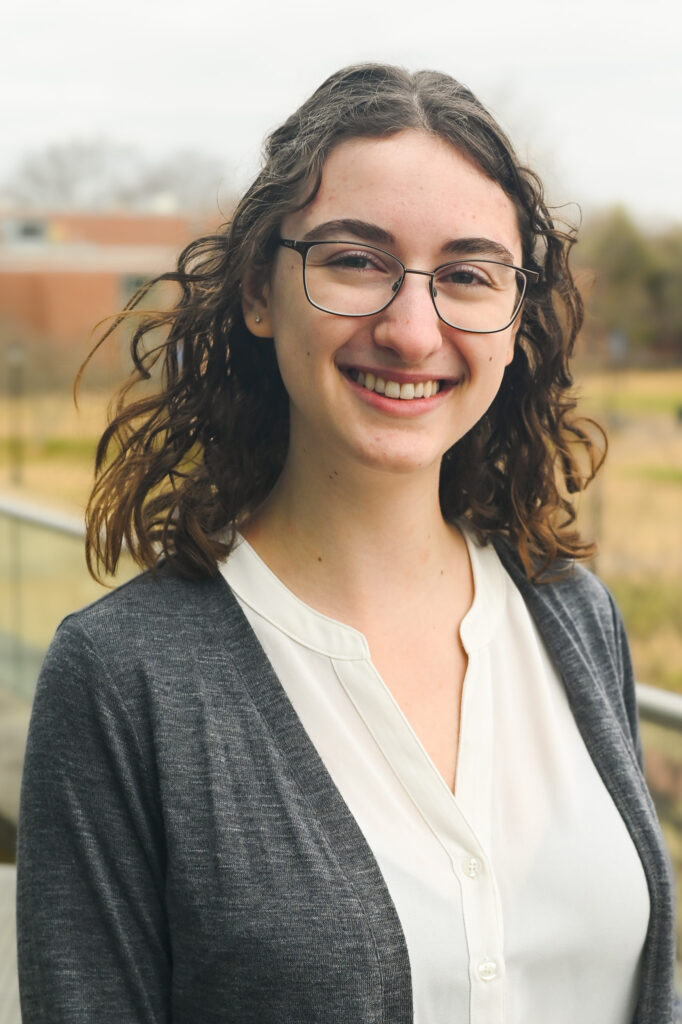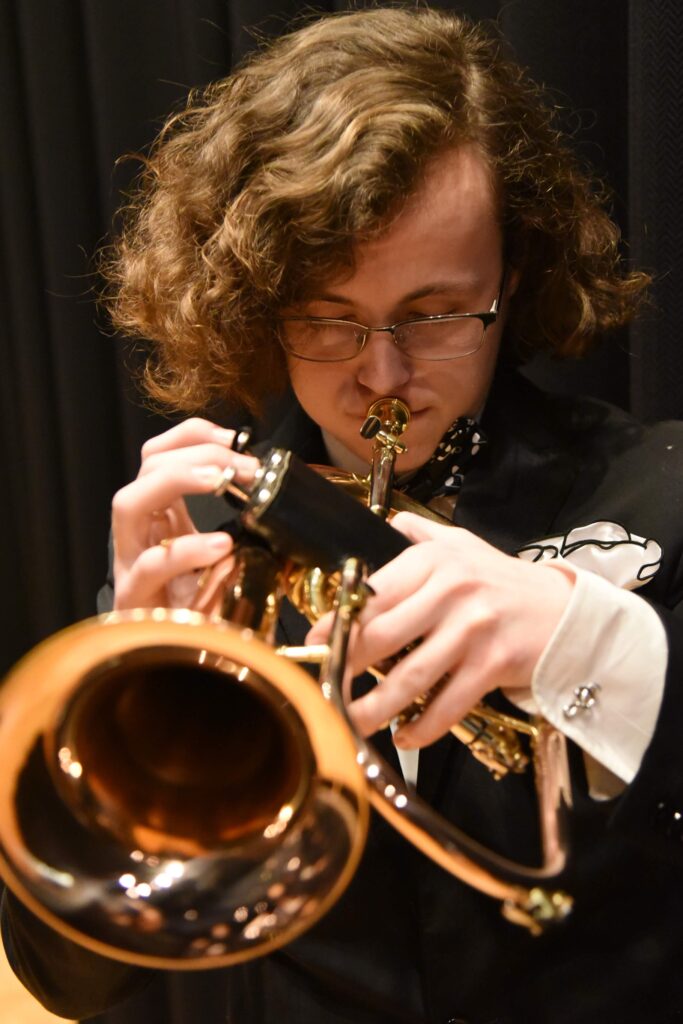Undergraduate Research Center
International Conference of Undergraduate Research (ICUR)
ICUR, the International Conference of Undergraduate Research, is the annual interdisciplinary academic conference that showcases the best in undergraduate research from around the world through our network of participating institutions.

ICUR connects MTSU students with an international audience. Students present their research to a global academic community, enhancing cross-cultural communication skills, expanding their academic perspectives, and increasing their visibility on the world stage.
This two-day academic conference showcases excellence in undergraduate research from around the world. This is a unique opportunity to present your research to interdisciplinary audiences across international borders in real-time, video-linked sessions from their home campus.
MTSU’s Undergraduate Research Center (URC) assists select students in applying for and participating in ICUR.
ICUR 2025 | June 18-19, 2025
Student researchers are encouraged to apply for the International Conference on Undergraduate Research for global exposure, interdisciplinary exploration, networking opportunities, comprehensive support, international collaboration, and more! We also invite faculty, mentors, and the undergraduate research community to participate in ICUR to advocate for and celebrate this community and to further their professional development through various mentoring sessions
Click the button below to express your interest in attending this year’s conference! We will include you in important correspondence.
Key Dates
| September 30, 2024 | Early Bird Submission Opens |
| November 19, 2024 | All Submissions Open |
| January 31, 2025 | Submissions Close |
| January 31, 2025 | All Submissions Review |
| February 24, 2025 | Revise and Resubmissions Open |
| March 17, 2025 | Final Review |
| June 18-19, 2025 | ICUR 2025 Conference |
Abstract Selection Process
Being accepted and attending ICUR is an impressive accomplishment and an opportunity for you to disseminate and celebrate your academic achievements. ICUR accepts abstract submissions from across a variety of disciplines. Faculty mentors are expected to take an active role in helping students plan, prepare, and practice their presentations.
The deadline to apply to ICUR is JANUARY 31 by 11:59 pm.
Students will be notified of the outcome, and if selected, students must submit an abstract to NCUR by the December deadline. The abstract acceptance letter will share additional details on the NCUR abstract submission, acceptance, and registration processes.
ICUR Student Resources
- FAQs
- Everything You Need to Know Before Applying
- Writing and Submitting Your Abstract
- Developing Your Presentation
- Attending ICUR
- Abstract Rubric
For questions, please contact Casey Penston at Casey.Penston@mtsu.edu
MTSU’s 2025 Selected ICUR Participants

Emily Callison
Quantifying the Growth Rate of Cryptococcus neoformans in Macrophage-Like Cells Using Live Cell Imaging
Faculty Mentor: Dr. David Nelson
Cryptococcosis is a severe fungal infection affecting the lungs and central nervous system. The causative agent of cryptococcosis is Cryptococcus neoformans (Cn), a facultative intracellular pathogen found ubiquitously in environmental reservoirs. Exposure to Cn occurs through inhalation of its airborne spores, which enter the lungs and initiate the pathogenic cycle. In the lungs, Cn encounters alveolar macrophages (AMs), which typically engulf and eliminate the pathogen through phagocytosis. However, Cn evades destruction by employing immune-evasion strategies, including vomocytosis—a process where the cell expels the pathogen unharmed—facilitating its dissemination and leading to life-threatening fungal meningitis in immunocompromised hosts. Current in vitro models, such as the J774 macrophage-like cell line, inadequately represent AMs, limiting our understanding of these processes. This study proposes Fetal Liver-Derived Alveolar-like Macrophages (FLAMs) as a more suitable in vitro model for studying the Cn infection. While previous studies indicate that FLAMs better resemble the AM phenotype and preliminary data from our lab show that FLAMs can ingest Cn, it remains unclear whether Cn can replicate within FLAMs and escape via vomocytosis, similarly to J774 cells. The primary objective of this study was to compare the intracellular replication rate of Cn in FLAMs and J774 cells. Using live-cell imaging, we standardized and quantified replication rates over time, revealing that Cn replicates at similar rates in both cell lines. This further validates FLAMs as a superior in vitro model for studying AM-Cn interactions. Future work will focus on comparing the vomocytosis capabilities between the two cell lines.
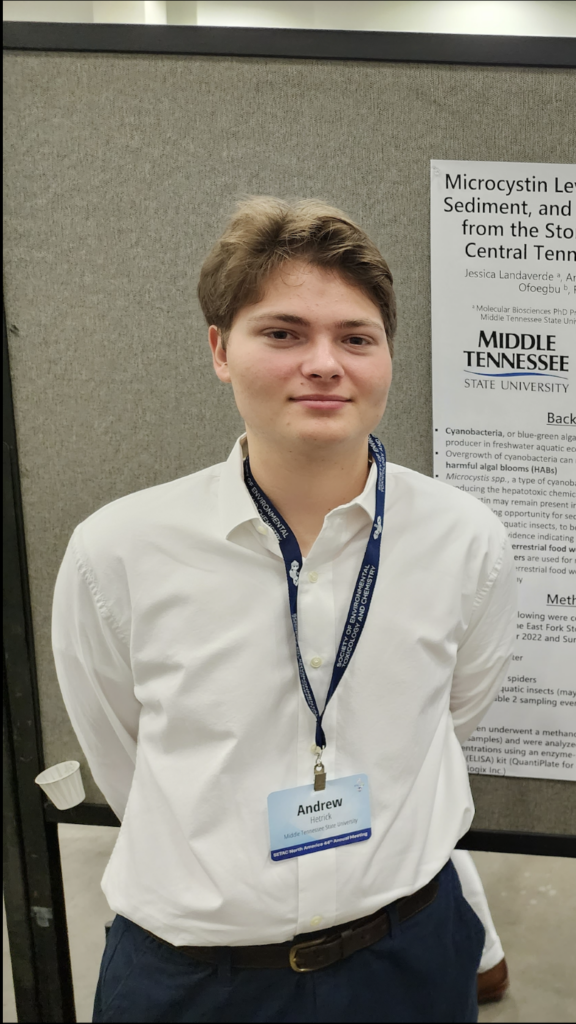
Andrew Hetrick
Seasonal Variations in the Ecology of Harmful Algal Blooms In the Stones River, Tennessee, USA using eDNA and PCR
Faculty Mentor: Dr. Frank Bailey
Harmful Algal Blooms (HABs) are becoming an increasing concern towards water quality and produce toxins that harm people and wildlife. One of the algal toxins of concern, microcystin, is produced by cyanobacteria and acts as a liver toxin. One of the primary bloom-forming genera that produce microcystins is Microcystis spp. The ability of cyanobacteria to produce the toxin depends on the presence of the microcystin synthetase gene cluster within its genome. We used polymerase chain reaction (PCR) techniques on cultured algae to amplify genes that can inform algal community structure in field samples. DNA primers that are capable of detecting genetic sequences for cyanobacteria, Microcystis, and microcystin synthetase E were utilized. Minimum concentrations for detecting bacteria via PCR were determined before use on field samples. These primer sets were then applied to field samples from the East Fork of the Stones River to infer the variation in cyanobacteria communities and toxin-gene presence through time. The Biotechnological data was compared with microcystin concentration, nutrient levels, pH, dissolved oxygen, conductivity, and bioaccumulation in aquatic emergent insects and spiders. The presence of target sequences for Microcystis and microcystin synthetase E were found to show a strong relationship with toxin concentrations. Cultured algal cells will be used again to develop methods that quantify the amount of a gene in a sample for the three primer sets. The relationship between toxin gene presence and microcystin levels indicates that there are future applications of using its abundance in the prediction of harmful algal blooms.

Ariel Nicastro
Improving Zinc Oxide Nanorod Synthesis for Enhanced Electrochemical Sensor Performance
Faculty Mentor: Dr. Suman Neupane
Zinc oxide (ZnO) is a biocompatible inorganic semiconductor with light-emitting and semiconducting properties, making it suitable for diverse applications, including medicine, cosmetics, and nanotechnology. Its wide bandgap and high electron mobility make it particularly promising for advanced sensing technologies. This study focuses on optimizing the hydrothermal synthesis of ZnO nanorods by investigating the effects of autoclave temperature and surfactants. The goal is to produce nanorods with enhanced crystallinity, diameters below 50 nm, and large length-to-diameter ratios—key attributes for improved ZnO-modified sensor performance. X-ray diffraction confirmed the crystalline structure of the synthesized ZnO, while scanning and transmission electron microscopy characterized the nanorod morphology. UV-visible spectroscopy revealed strong absorption at 370 nm, corresponding to a 3.35 eV bandgap, validating the material’s potential for sensor applications. The optimized ZnO nanorods are designed to enhance the sensitivity, accuracy, and scalability of ZnO-modified electrochemical sensors. Sensor performance will be assessed using cyclic voltammetry to track current responses to voltage changes. Future work will refine ZnO integration with electrode materials, explore alternative synthesis methods, and investigate the role of ZnO modification for biosensors and photoelectric sensors. By addressing critical synthesis challenges, this research advances the reliability and cost-effectiveness of ZnO-based sensors, paving the way for their broader use in environmental monitoring, healthcare, and industrial quality control.

Chet Muny
Determining Trophic Movement of Riparian Systems Using Tetragnathid Spiders as a Sentinel Species
Faculty Mentor: Dr. Frank Bailey
The most reported cyanotoxins are hepatotoxins called microcystins. Microcystins are potent hepatotoxins. They are strong inhibitors of the serine/threonine phosphatases which control key biological pathways such as cell proliferation death. This interference triggers a chain of events that leads to eventual death of animal cells. Microcystin targets the liver and induces hepatocyte death. Microcystis blooms that produce microcystin are becoming increasingly more common due to human activity, potentially moving onto terrestrial ecosystems through trophic – food chain – transfer. Tetragnathid spiders’ diets primarily consist of aquatic emergent insects (insects that develop in water before emerging), making them indicators of movement between aquatic and terrestrial ecosystems. Water, sediment, spiders, and insects were collected biweekly at three sites at Walter Hill Dam. All samples, except water, underwent a methanol extraction and analyzed for microcystin concentrations. Previous studies indicated terrestrial transfer of microcystin from mayflies to birds; we expect similar relationships between insects and tetragnathid spiders. Microcystin concentrations were confirmed in aquatic insects and tetragnathid spiders. Considering spiders’ diets are primarily insects, a probable cause of spider microcystin levels being elevated is from consumption of insects. Microcystin concentrations in water, sediment, insect, and spiders were found to change seasonally. Globally, microcystin contamination has caused animal and human deaths. Knowing the potential of it to bioaccumulate can help us understand how to contain it. Future directions for this research will focus more on triggers of microcystin production.
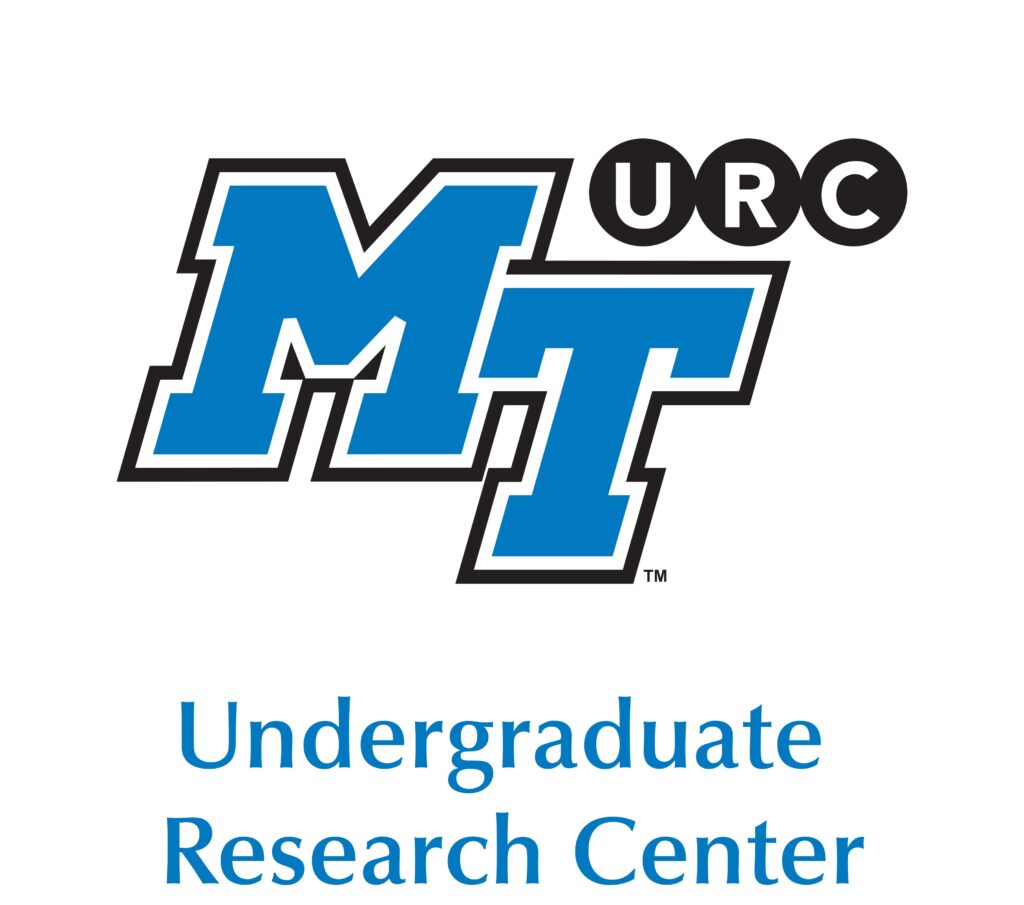
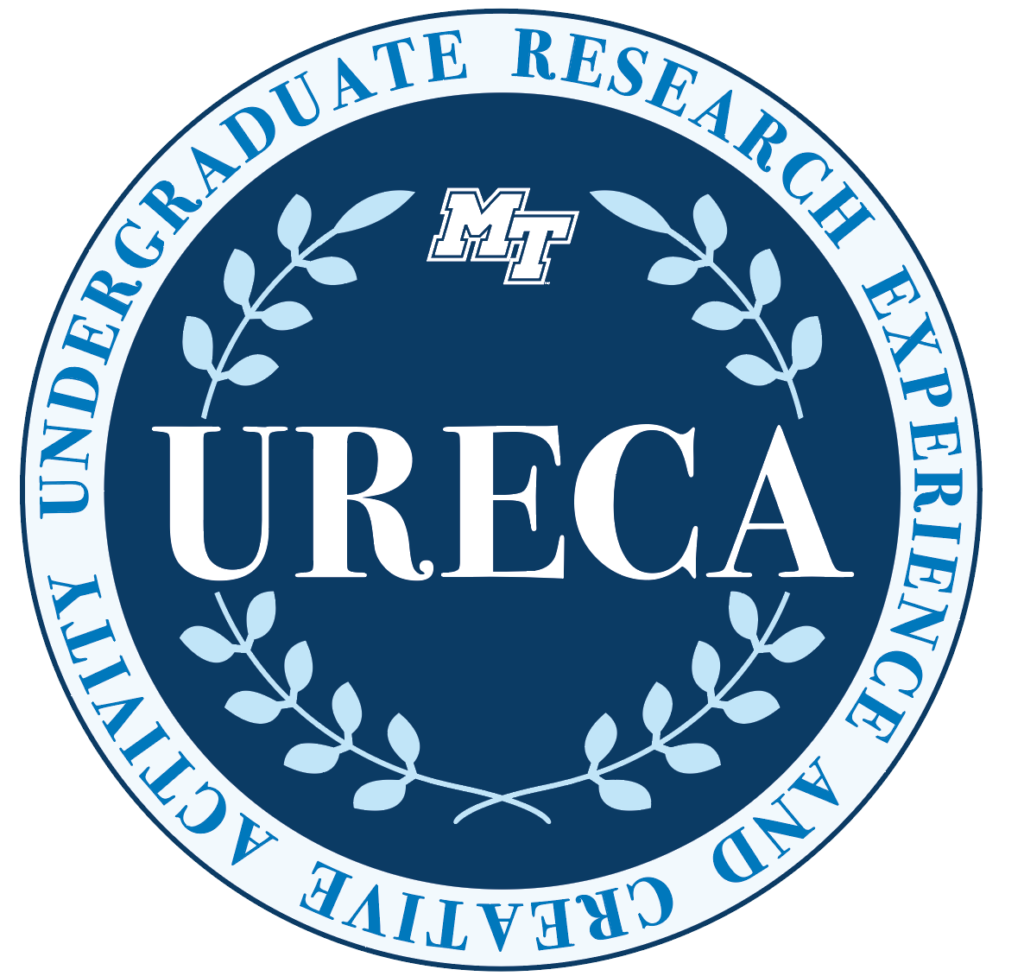
Fall URECA Deadline
Thursday, September 4th at 4:30 pm
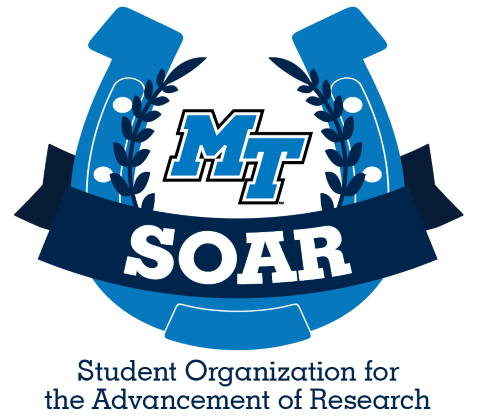
Contact us
Jamie Burriss, Ph.D., Director
(615) 494-7669
Jamie.Burriss@mtsu.edu
Casey Penston, Coordinator
(615) 494-7614
Casey.Penston@mtsu.edu
